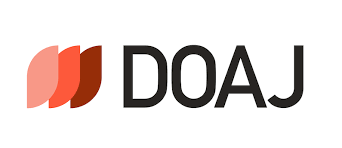Evaluation of a shrimp trawl structuraly modified
DOI:
https://doi.org/10.20950/1678-2305.2016v42n2p353Keywords:
Trawl gear, bycatch, structural changeAbstract
The impacts due the shrimp trawl have been generating discussions over the last decades. Seeking to cooperate with efforts to bycatch reductions from bottom trawl, this paper proposes to restrict the vertical open mouth of trawls, seeking to reduce the fish catches in the water column. Additionally, we evaluated a device to juvenile teleost exclusion. Aware of the impacts generated by the fuel, this work also evaluated the drag resistance of different net panels as indicative of fuel consumption. To evaluate the proposed, 18 hauls were realized between December 2014 to February 2015. Those hauls were organized into three experimental fishing campaigns in Pinheira Beach (south Brazilian region). During the fields campaigns we used two trawl with four panels (CT í with escape window; ST í without escape window) and a control trawl with two main panels (RN). The RN trawl got the highest shrimp catches (CA) and bycatch (FA). On the other hand, the modified trawls showed the highest CA proportion in relation RN. The net panels drag suggests that the modified trawls provide a reduction in fuel consumption because of its lower resistance. The results showed that the structural changes contribute to bycatch reduction usual in bottom trawls.
References
ANDREW, N.L.; GRAHAM, K.J.; KENNELLY, S.J.; BROADHURST, M.K. 1991. The effects of trawl configuration on the size and composition of catches using benthic prawn trawls off the coast of New South Wales, Australia. - ICES J. Mar Sci., 48: 201-209
BAIL, G.C. e BRANCO, J.O. 2007. Pesca artesanal do camarão seteí barbas: uma caracterização socio- econômica na penha, SC. í Braz. J. Aquat. Sci. Techonol., 11(2):25-32.
BALASH, C.; STERLING, D.; BINNS, J.; THOMAS, G.; BOSE, N. 2014. The effect of mesh orientation on netting drag and its application to innovative prawn trawl design. Fisheries Research, 164 (2015) 206í 213.
BALASH, C. 2015. Prawn Trawl Shape due to Flexural Rigidity and Hydrodynamic Forces. (thesis University of Tasmania). Disponível em: http://eprints.utas.edu.au/14737/. Acesso: 12 abr. 2015.
BROADHURST, M.K. 2000. Modifications to reduce bycatch in prawn trawls: A review and framework for development. - Reviews in Fish Biology and Fisheries, 10: 27í 60.
BROADHURST, M.K.; BRAND, C.P.; KENNELLY, S.J. 2011. Evolving and devolving bycatch reduction devices in an Australian penaeid-trawl fishery. - Fisheries Research, 113 (2012) 68í 75.
BROADHURST, M.K.; STERLING, D. J.; MILLAR, R. B. 2012. Short vs long penaeid trawls: Effects of side taper on engineering and catching Performances. Fisheries Research, 134í 136 (2012) 73í 81.
CATTANI, A.P. 2010. Avaliação de dispositivo de redução de captura incidental na pesca de arrasto do município de Pontal do Paraná í PR. (Dissertação. Universidade Federal do Paraná). Disponível em: http://dspace.c3sl.ufpr.br/dspace. Acesso em: 6 jun. 2014.
CEIA. F.R.S. 2002. Caracterização da Pescaria de Camarão-Branco-Legítimo (Palaemon serratus) com Arte de Arrasto de Vara na Região Norte de Portugal. (Relatório do Curso de Licenciatura em Biologia Marinha e Pescas) http://www.researchgate.net/publication. Acesso em: 27 abr. 2015.
D’INCAO, F.; VALENTINI, H.; RODRIGUES, L.F. 2002. Avaliação da pesca de camarões nas regiões sudeste e sul do Brasil 1965-1999. - Atlí¢ntica, Rio Grande, 24(2): 103-116.
ERCOLI, R.; IZZO, A.; SALVINI, L.A.; GARCIA, J. C., BARTTOZZETI, J.D., ROTH, R.R. 2001. Experiencias de selectividad en los copos de las redes de arrastre y desanrrollos de dispositivos selectivos con grillas en la pesquería Argentina. í El Mar Argentino y sus recursos pesqueros, 3: 121-144.
FOOD AND AGRICULTURE ORGANIZATION OF THE UNITED NATIONS (FAO). 1995. Code of Conduct for Responsible Fisheries Rome, FAO, 41p.
FOOD AND AGRICULTURE ORGANIZATION OF THE UNITED NATIONS (FAO). 2008. Global study of shrimp fisheries. FAO FISHERIES TECHNICAL PAPER. 475p.
FOOD AND AGRICULTURE ORGANIZATION OF THE UNITED NATIONS (FAO). 2007. A Guide to Bycatch Reduction in Tropical Shrimp-Trawl Fisheries. Revised edition. Rome, FAO, 108p.
FRANCO, A.C.N.P.; JUNIOR, R.S.; PIERRI, N.; SANTOS, G.C. 2009. Levantamento, sistematização e análise da legislação aplicada ao defeso da pesca de camarões para a região sudeste e sul do Brasil. - B. Inst. Pesca, 35(4): 687-699.
GLASS, C.W.; WARDLE, C.S. 1994. Studies on the use of visual stimuli to control fish escape from codends. II. The effect of a black tunnel on the reaction behaviour of fish in otter trawl codends. Fisheries Research, 23 (1995) 165-174.
GLASS, C.W.; WARDLE, C.S.; GOSDEN, S.J.; RACEY, D.N. 1994. Studies on the use of visual stimuli to control fish escape from codends. I. Laboratory studies on the effect of a black tunnel on mesh penetration. Fisheries Research, 23 (1995) 157-164.
GUIJARRO, B. and MASSUTÍ, E. 2006. Selectivity of diamond- and square-mesh codends in the deepwater crustacean trawl fishery off the Balearic Islands (Western Mediterranean) - ICES Journal of Marine Science, 63: 52-67.
IBAMA. 2005. Relatório técnico sobre o censo estrutural da pesca artesanal marítima e estuarina nos Estados do Espírito Santo, Rio de Janeiro, Paraná, Santa Catarina e Rio Grande do Sul. Convênio SEAP/IBAMA/PROZEE No 110/2004(Processo no00350.000748/2004-74) Itajaí 2005.
IBAMA. 2011. Proposta de plano Nacional de gestão para o uso sustentável de Camarões Marinhos do Brasil. 242p. : il. color. ; 15 cm. (Série Plano de Gestão Recursos Pesqueiros, 3). Disponível em: http://www.ibama.gov.br. Acesso em: 10 abr. 2015.
INAPESCA. 2010. Manual de Construcción de la Red de Arrastre Prototipo "RSINP- MEX†Para Captura Selectiva y Eficiente de Camarón Costero. 44p. SAGARPA. INAPESCA, México. Disponível em: htt:// www.inapesca.gob.mx. Acesso em: 2 abr. 2015.
JENNINGS, S.; KAISER, M. J.; REYNOLDS, J.D. 2001. Marine fisheries ecology: readings in cointegration. 108 Cowley Road: Oxford OX4 1JF, UK. 108p.
KENNELLY, S. J.; LIGGINS, G.W.; and BROADHURST, M.K. 1998. Retained and discarded by-catch from oceanic prawn trawling in New South Wales, Australia. Fisheries Research., 36: 217-236.
MEDEIROS, R.P.; GUANAIS, J. H.D.G.; SANTOS, L. O.; SPACH, H.L.; SILVA, C.N.S., FOPPA, C.C.; CATTANI, A.P.; RAINHO, A.P. 2013. Estratégias para a redução da fauna acompanhante na frota artesanal de arrasto do camarão-sete-barbas: perspectivas para gestão pesqueira. - Bol. Inst. Pesca, 39(3): 339í 358.
MONTEIRO. H.S. 2007. Ictiofauna acompanhante na pesca artesanal de camarões na praia da Pinheira, Palhoça/SC. (Dissertação Universidade do Vale de Itajaí). Disponível em: http://siaibib01.univali.br/biblioteca Acesso: 08 ago. 2014.
OKONSKI, S. y MARTINI, L.W. 1987 Artes y métodos de pesca: Materiales didacticos para la capacitacion técnica. Argentina: Hemisfério sur. 339p.
PEREZ, J.A.A.; PEZZUTO, P.R.; RODRIGUES, L.F.; VALENTINI, H.; VOOREN, C.M. 2001. Relatório da reunião técnica de ordenamento da pesca de arrasto nas regiões sudeste e sul do Brasil. í Notas tec. Facimar, 5: 1-34.
QUEVEDO, J.A.H. 2001. Shrimp trawl design improvements suggested for Mexican fisheries. UNU-Fisheries Training Programme. Disponivelem: http://www.unuftp.is. Acesso: 10 abr. 2015.
SUURONEN, P.; CHOPIN, F.; GLASS, C.; LOKKEBORG, S.; MATSUSHITA, Y., QUEIROLOE, D., RIHANF, D. 2012. Low impact and fuel efficient fishingâ€"Looking beyond the horizon. - Fisheries Research 119í 120 (2012) 135í 146.
RICO-MEJÍA, F. y RUEDA, M. 2007. Evaluación experimental bioeconómica de cí¢mbios em la tecnología de captura de camarón com redes de arrastre em aguas someras del pacífico colombiano. í Bol. Invest. Mar. Cost. 36: 79-109.
SANTOS, D.B.; FREIRE, F.A.M.; PONTES, G.S. 2013. Comportamento do camarão em diferentes substratos nas fases clara e escura do dia. - Pesq. Agropec. Bras., 48(8): 841-848.
SILVA, C.N.S.; DIAS, J.H.; CATTANI, A.P.; SPACH, H.L. 2012. Relative efficiency of square-mesh codends in an artisanal fishery in southern Brazil. - Lat. Am. J. Aquat. Res., 40 (1): 124-133.
SIMONASSIL, J.C.; HENNEMANN, M.C.; TALGATTI, D.; MARQUES-JUNIOR, A.N. 2010. Nutrient variations and coastal water quality of Santa Catarina Island, Brazil. - Biotemas, 23(1): 211-223.
TYEDMERS, P. 2004. Fisheries and Energy Use. - Encyclopedia of Energy, 2. 2004 Elsevier Inc. All rights reserved.










